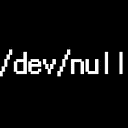Real-Time Communication Protocol Defense
This PowerShell script begins by setting the execution policy to RemoteSigned for the current user, allowing the execution of locally created scripts. It dynamically determines the local communication server’s IP address by first attempting to retrieve the IPv4 address and, if not available, falling back to the IPv6 address. The script then enters an infinite loop, periodically testing the stability of the real-time communication protocol with the specified server using the Test-NetConnection cmdlet. In case of a stable connection, it prints a message indicating the stability; however, if the connection is interrupted, it raises a warning of a potential attack and suggests implementing automated responses such as blocking suspicious IPs or generating alerts for further investigation. The script incorporates a try-catch block to handle potential errors during the connection test, ensuring robustness and providing error details for troubleshooting. The loop repeats every 10 seconds, facilitating continuous real-time monitoring of the communication server.
Set-ExecutionPolicy -ExecutionPolicy RemoteSigned -Scope CurrentUser -Force
$communicationServer = (Test-Connection -ComputerName $env:COMPUTERNAME -Count 1).IPV4Address.IPAddressToString
if (!$communicationServer) {
$communicationServer = (Test-Connection -ComputerName $env:COMPUTERNAME -Count 1).IPV6Address.IPAddressToString
}while ($true) {
try {
$result = Test-NetConnection -ComputerName $communicationServer -InformationLevel Quietif ($result) {
Write-Host “Connection is stable.”
} else {
Write-Host “Connection interrupted. Possible attack!”
# Add code to respond automatically, like blocking suspicious IPs or generating alerts for investigation.
# Consider using intrusion detection systems (IDS) or advanced threat protection.
}
} catch {
Write-Host “Error testing connection: $_”
# Add error handling code if necessary
}Start-Sleep -Seconds 10
}
